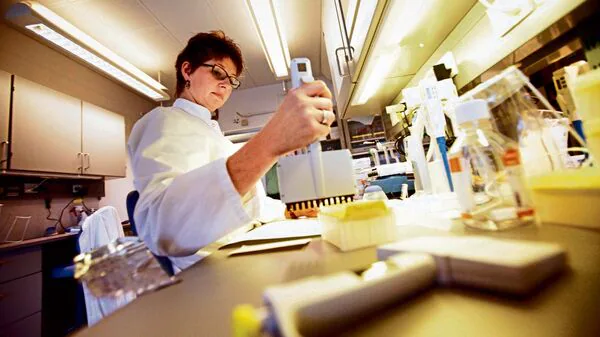
Top Drug Regulator Looks To Fix Approval Process Anomaly For First Innovator
New Delhi: In a move to spur drug innovation and restore fairness in the regulatory ecosystem, India's top drug authority plans to overhaul a rule that puts early applicants for new medicines at a disadvantage, according to official documents and people familiar with the matter. The change is aimed at easing delays and encouraging greater investment in clinical research, a crucial step as India seeks to reinforce its role as the“pharmacy of the world" and expand its $50 billion pharmaceutical market.
Under the existing framework, the first company seeking approval for a new drug must conduct clinical trials and bioequivalence studies, an expensive and time-consuming process. Subsequent applicants can, however, secure clearance for the same medicine by submitting only bioequivalence data, effectively benefiting from the groundwork laid by the initial applicant.
Also Read | Drugs regulator to turn the screws on spurious medical productThe cost for the first applicant can run into crores of rupees. The total cost of a clinical trial in India is influenced by numerous factors, including the trial phase, type of drug, patient sample size, and the specific procedures involved. The total cost of a clinical trial in India can range from $1 million to $3 million (about ₹8.8-26.4 crores) and the regulatory fees are in the range of ₹2-3 lakhs for each phase. The development of a new drug can typically cost ₹1.0-1.5 crores. Bioequivalence studies cost much less, with an application fee of ₹2 lakh.
Public comments invitedTo correct this imbalance and draft a fairer, research-friendly approval policy, the Central Drugs Standard Control Organization (CDSCO) has now invited public comments.
In a communication dated 8 October, Drugs Controller General of India Dr Rajeev Singh Raghuvanshi sought feedback from industry stakeholders to help design a more equitable framework. Officials said the aim is to ensure parity in regulatory obligations while promoting innovation and faster access to new therapies, a balance that could be critical as India's clinical tria market, valued at $1.5 billion, is projected to grow to $8.4 billion by 2029.
“There is lack of level playing field between the first applicant who obtains approvals of a new drug first time in the country based on the clinical trial and bioequivalence study and the subsequent applicants who obtain approval of the same new drug on bioequivalence study data, for whom the cost of regulatory compliance is much lesser as they are not required to conduct the clinical trial," Raghuvanshi said.
Also Read | Why the drug regulator is looking to redesign medicine label“The move by the CDSCO is a significant step towards creating a more equitable and transparent regulatory framework. The current system has been found to be inefficient, as multiple companies often seek permission to conduct clinical trials for the same drug. However, in many cases, only one applicant actively proceeds with the full trial and submits the necessary reports. The other applicants then simply submit bioequivalence study reports to get approval for the same drug," said an official in the know of the development. "This means they benefit from the costly and time-consuming efforts of the first applicant, who is required to conduct both clinical trials and bio-equivalence studies. The discrepancy creates a scenario where the cost of regulatory compliance is much lower for subsequent applicants."
Largest generic medicine providerIndia is world's largest provider of generic medicines by volume, holding a 20% share of the total global pharmaceutical exports. With its pharmaceutical market valued at about $50 billion, and projected to reach up to $130 billion by 2030, a fair and efficient approval process is vital for continued growth and international standing.
“The aim is to initiate a discussion to address this 'discrepancy' and encourage new drug development. This consultation process will help the CDSCO formulate a balanced policy that promotes research and development while ensuring a level playing field. Stakeholders have a 30-day window from the date of the notice to provide their feedback," said a second official.
Also Read | From factory to pharmacy: Will new transit rules ensure safer drugs“We are reviewing the government's communication and will discuss the matter with the Drugs Controller General of India before we finalize our official response," said Dr. Viranchi Shah, national spokesperson of the Indian Drug Manufacturers' Association (IDMA) and director of Saga LifeSciences.
Queries sent to the health ministry spokesperson on Saturday were not answered till press time.
Legal Disclaimer:
MENAFN provides the
information “as is” without warranty of any kind. We do not accept
any responsibility or liability for the accuracy, content, images,
videos, licenses, completeness, legality, or reliability of the information
contained in this article. If you have any complaints or copyright
issues related to this article, kindly contact the provider above.

















Comments
No comment